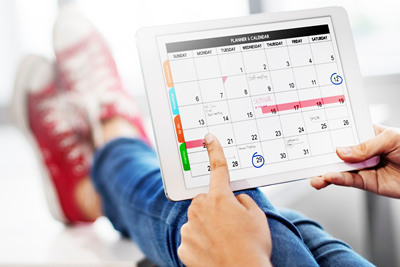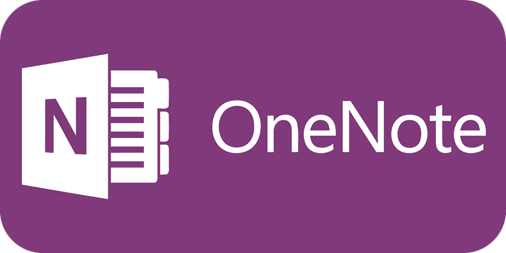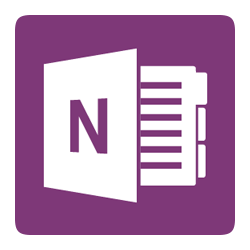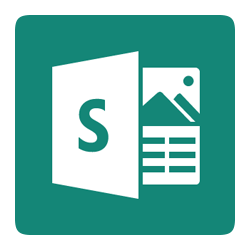Student Toolkit

Prioritizing Assignments With Other Courses
As soon as the semester starts go over all of the scheduled assignments and prioritize them according to their due dates.
Calendar
Include personal days/events so that your work schedule stays realistic.

Find A Comfortable Place
Find a place where you feel comfortable and can concentrate on your studies. Some learners prefer to go to the library to study, while others prefer to stay at home. Once you have found a good place to study, commit to that location.

Reading Course Syllabus and Schedule
Read your course syllabus and schedule exams, assignments, any project that has a due date so you can stay ahead on your studies.
Communication

Communicate with professors right away in emergency situations, just as you would do in a traditional face to face course.Attend virtual office hours. If you are not sure if your professor is hosting virtual office hours, contact them and ask. Professors at Purdue usually use WebEx to host virtual office hours. Utilize the Learning Management System (Brightspace) to stay connected.

Use netiquette when participating in discussion boards.
Keep in contact with the members of your group as you work together in assignments.
Share with each other study habits.
Schedule a time to meet virtually if time allows.
Study Habits
Have Dedicated Work Days

With courses having different deadlines for assignments, projects, and readings, it is important to have a proper study structure in place. For example, you may have an online discussion post to read or write by Wednesday and respond to your peer’s responses on Friday.
Although it is possible to complete these tasks the day of, it is important to note that your instructors will not want you to only state your opinion. You will need to prove that you have been reading the readings, which will require more time. The best approach to submitting your assignments on time is by having dedicated work days. This allows you to complete your course tasks 2-3 times a week versus cramming for an assignment deadline.
In this case, you should set personal deadlines of completing your discussion post that is due on Wednesday on Tuesday and your response to a peer that is due on Friday on Thursday. This provides you with a buffer so that you can have additional time if needed. This comes in handy when you need additional time writing your post, working on another assignment, or even taking a break to relax.
Take Notes as You Watch Lectures

Many online courses include helpful video lectures. It is important to watch and listen to these videos; however, writing notes are essential to this process. Take notes just as if you were in a traditional course.
Complete Assignments in Smaller Chunks

Do not procrastinate. Work on your assignment in sections instead of waiting until the last minute to complete the whole assignment.
Figure out how much time you have to complete the assignment.
Determine how long you will work at each sitting to complete the assignment.
Think about the logical order of completing pieces. What should you do first, second, third, etc.?
Complete your task early enough to have some time left for a final review.
Eat Healthy Snacks
Just because you are in an online course, does not mean healthy living is out of the picture. One way to stay focused and avoid any health challenges is by eating healthy snacks. Just as you should avoid eating heavy food items right before completing homework assignments, you should do the same for online courses.

You want to make sure that your mind is focused and you’re concentrating, but not starving. Here is a list of some possible healthy snacks that will keep you focused and energized:
- Popcorn
- Almonds
- Veggies
- String Cheese
- Grapes
- Granola Bars
- Hummus
- Yogurt
- Sunflower Seeds
Set Mini Goals

Pick a place and time. Everyone has their own idea about the best place and time to study. Whether it’s your bedroom at night or the library after school, find a study space and a regular study time that works for you and stick with it.
Make a point of studying a little bit every day. If you study a little bit every day you’ll be continually reviewing things in your mind. This helps you understand things. It also helps you avoid the stress of last-minute cramming and pushing yourself late at night can make you too tired to study properly.
Be Positive. Your attitude has a big impact on the level of study that you get done and the effectiveness of your learning process. If you keep saying that you can’t do it and won’t commit to the idea of learning, attempting to study is only likely to become more difficult. Instead, focus your mind on positive outcomes and on how you can use your own individual strengths to achieve them.
Find the best way to learn

Most of us have a preferred way of learning. Get to know your learning style and study in the ways you learn best.
Auditory learners learn by listening. If you’re an auditory learner you could try reading your notes aloud and discussing them with other people. You might like to record key points and play them back.
Visual learners learn by seeing. If you’re a visual learner you could use colors in your notes and draw diagrams to help represent key points. You could try to remember some ideas as images.
Tactile/kinesthetic learners learn by doing. If you’re a tactile/kinesthetic learner you could use methods like role-playing or building models to revise key points.
Get Proper Rest

Try to go to sleep and get up at the same time every day.
Create a calm and restful sleep environment.
Take time for relaxing activities before sleep.
Limit caffeine, nicotine, alcohol, and big meals at night.
Take Mini Breaks

Study in chunked sessions: Your ability to retain information diminishes after about 25-30 minutes, so break it up into multiple, smaller sessions.
Reward yourself with fun activities during your breaks. When you take a break, make sure you get away from your desk or study space.
A bit of physical activity – even just a walk around the block – can sometimes help you to look at a problem in a different way and could even help you to solve it.
Working with Groups
Working in groups can be sometimes challenging when everyone has a different perspective. We’ve all been in a situation where not everyone has pulled their weight, but it’s something that we must master in the courses. The same thing applies to online courses.
Helpful Tools




Tips for Working Well in Groups

- Opening lines of communication
- Ex: Determining if the communication is via email, video chat, phone, etc.
- Determining roles for group members in the assignment
- Ex: Someone is the editor, project manager, or a researcher of a certain part of the assignment
- Planning goals in order to meet the deadline
- Being responsible of your portion of the assignment and communicating with your members
- Indicating to your instructor early on if there is a group problem.
- Ex: Letting your instructor know a group member has not participated.
Tools
There are a variety of tools that can take assist you in your online coursework and help you organize your information.
* Sway, PowerPoint, OneNote and Office 365 are recommended because of the use of 365 on campus but are not supported by TLT.











